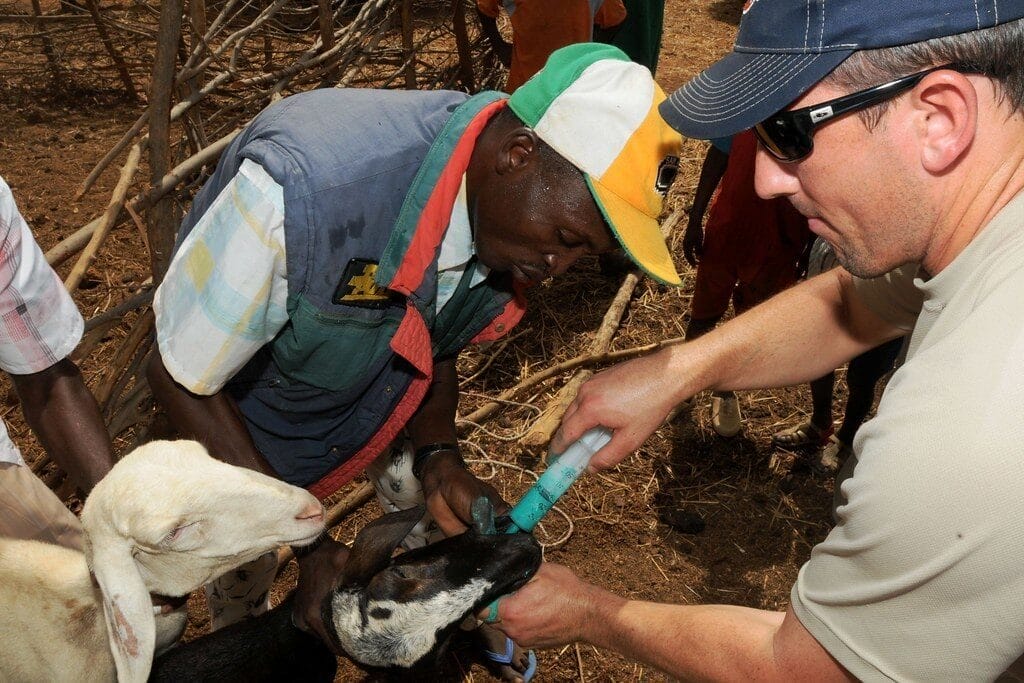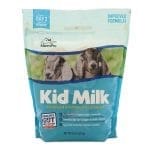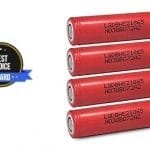Best Goat Dewormer: Comprehensive Guide and Top Recommendations on on the Best Dewormer for Sheep and Goat including Merck Safe-Guard Parasite Deworm Products

When it comes to keeping goats healthy, deworming is like the secret sauce. Imagine, if you will, a world where goats can munch on grass without worrying about pesky worms making a home in their bellies. That’s what dewormers do – they kick those unwelcome guests out. From the classic options to the latest in goat gut health, we’re diving deep into what makes a dewormer stand out.
Let’s talk about the champs of the deworming world, with choices that cover all bases – meat, dairy, and yes, even those caring moms-to-be, lactating goats. With options ranging from the trusty pellets to liquid gold that flows through a drench gun, we’ve got the scoops on what works best for every kind of goat out there. And trust me, it’s about more than just picking the right product; it’s about keeping your goat herd thriving and alive.
Understanding the Threat: Parasites and Worms in Goats
Worms in goats? More common than you’d think. These sneaky little critters can be quite the headache, worming their way into our goats’ systems, leading to all sorts of problems. If left unchecked, these parasites can wreak havoc, from poor weight gain to serious health issues. Think of them like uninvited guests at a dinner party, eating all the food and leaving nothing for the hosts.
But fear not! Knowledge is power, and understanding the enemy is the first step in defeating it. Picture a dewormer as the bouncer at the door, saying, “Not today, worms!” By mixing into their feed, these medicated marvels make sure the goats stay healthy, nourished, and more importantly, worm-free. It’s a battle worth fighting to keep our goats grazing happily on their pastures.
The Skinny on Worms in Goats and Their Impact on Animal Health

Let’s break it down: worms in goats are bad news. These parasitic party crashers don’t just stop at making a goat uncomfortable; they go full villain, impacting their health big time. From diarrhea and weight loss to a coat that looks duller than a rainy day, the signs are there, and they’re waving red flags.
But here’s the kicker – it’s not just about the visible woes. Internally, these worms can cause serious damage, leading to malnutrition and weakened immune systems. It’s a gut punch, literally. Fortunately, with the right dewormer in our arsenal, we’ve got a fighting chance to protect our goats and ensure they lead a healthy, worm-free life. It’s all about keeping those insidious invaders at bay.
When Are Goats More Susceptible to Worms?
If goats had a calendar, they’d mark warm, moist conditions as high-alert days for worm invasions. When the grass is just right, and the weather feels like a tropical getaway, worms think it’s party time. These conditions are like laying out a welcome mat, especially when goats are grazing close to the ground, picking up more than just their lunch.
And let’s not forget the new moms. Just when a doe has given birth, and her immune system is not at its peak, worms see an opportunity. This is why keeping an eye on these vulnerable moments and acting swiftly with a deworming plan is crucial. It’s not just about fighting off the current threat but ensuring the future health of the herd. Keeping goats in tip-top shape requires vigilance, especially during these critical times.
Top 5 Recommended Dewormer for Goats – Best Goat Dewormers
Dewormers are like superheroes for goats, each with its own special powers. We’re shining the spotlight on the top contenders, from pellets that slip into meals unnoticed to liquids that go down smoother than a goat’s favorite snack. These champs are ready to tackle worms head-on, armed with the best active ingredients out there.
And here’s the deal: when it comes to keeping goats of all classes – meat, dairy goat, even those precious pregnant and lactating moms – healthy, choosing the right dewormer can make all the difference. Whether it’s in a 25 lb bag ready for the long haul or a smaller dose for quick fixes, there’s something for every goat and every situation. It’s about being prepared, come worm season or high water.
1. Merck Safe-guard Goat Dewormer – A Trusted Choice for worm control with Fenbendazole
Now, let’s talk about a heavyweight in the dewormer league: Merck Safeguard. Think of it as the reliable old friend who’s always got your back, especially when it comes to showing worms the door. Known for its effectiveness, it’s like the superhero cape we all wish we had, ready to save the day, one goat at a time.
This trusted choice doesn’t mess around. Its formula is a proven powerhouse, designed to tackle those sneaky parasites from every angle. And for those worried about sizes, it comes ready to accommodate with options including a 25 lb pack, making it perfect for herds of all sizes. Safeguard is not just a dewormer; it’s a peace of mind in a bucket.
How to Administer Safeguard to Your Goats
Administering Safeguard is like giving your goats a VIP ticket to health. The process? Smoother than you’d expect. Whether using the 25 lb pack for the whole crew or individual doses, it’s all about precision. A measured approach ensures each goat gets exactly what it needs to fend off worms and stay in tip-top shape.
But remember, it’s not just about the right amount; it’s also about frequency. Keeping up with a deworming schedule is like keeping the rhythm in a well-choreographed dance, ensuring your goats stay ahead of the worm game and thrive. So, grab that drench gun or measuring scoop, and let’s get those goats worm-free and living their best life.
2. Durvet Ivermectin Sheep Drench – Effective Against a Broad Spectrum of Worms
Next up, we have the Durvet Ivermectin Sheep Drench, stepping into the ring with the confidence of a champ ready to take on any and all worms. It’s like the Swiss Army knife of dewormers – versatile, reliable, and ready for action. Against a broad spectrum of worms, this liquid warrior means business.
But here’s where it shines – fecal egg counts dive faster than a kid on Christmas morning after spotting presents under the tree. That’s right, this effective dewormer sends worms packing, with results you can literally count. Say goodbye to uninvited worm guests and hello to a herd that’s healthier, happier, and decidedly less itchy.
The Correct Dosage and Application Method for Ivomec
Ivomec is a champ for keeping the worms away, but you gotta get the dose right. For goats, it’s not a one-size-fits-all deal. First off, since Ivomec is originally for cattle, the tricky part is adjusting that dose for goats. They need a bit more, so listen to the vet’s advice or the label’s whisper. Typically, folks use 1.5 to 2 times the cattle dosage for goats to kick those worms to the curb.
Administering it correctly is another slice of the pie. Oral is the way to go for goats, even though Ivomec might come with instructions for injection. Going oral route means those parasites get hit hard directly in the gut, where they’re partying. Just make sure to use a syringe (sans needle, please) to get the dewormer where it’s supposed to be, and not decorate your shoes.
3. Manna Pro Positive Pellet® Goat Dewormer – Convenient and Easy to Use
Manna Pro Positive Pellet® is like the cool, easygoing friend in the goat dewormer world. It’s a hit because you can use it for all your goats – the meaty ones, the milky ones, and even the moms-to-be and the new moms. What makes it stand out is how you give it to your goats. You just top-dress their regular feed with it, no wrestling matches are needed. It’s a meal and medicine, all in one.
Let’s talk goodies inside this dewormer. It packs a punch with Rumatel, which is tough on the worst worms but easy on your goats. Plus, it doesn’t skim on vitamins and minerals, so goats stay strong and healthy while their worm worries are taken care of. The convenience of feeding this pellet monthly, and its year-round protection, makes it an MVP in goat care. And hey, they offer it in sizes for both small herds and big operations, 6 lb and 25 lb bags.
Why Positive Pellet® Stands Out Among Other Dewormers
Why do folks love Positive Pellet®? Well, for starters, it’s like the pocket knife of goat care – super versatile and handy. It shines because it’s not just a dewormer; it’s a nutritional booster too. So, your goats aren’t just getting rid of freeloaders; they’re dining on a buffet of essentials that keep them top of their game. Plus, it’s so easy to use. No drama, no fuss.
You keep it at room temperature, and it’s ready whenever you need it. No mixing, no measuring doses for each goat. You sprinkle it on their food, and boom, you’re done. Their worms get zapped, and they don’t miss a beat in getting all those nutrients. It’s like sneaking veggies into a kid’s pizza; they don’t know it’s good for them, but they love it.
4. Prohibit Cattle and Sheep Wormer – Versatile and Potent
When it comes to kicking worms to the curb, Prohibit Cattle and Sheep Wormer is like the heavyweight champ. It’s versatile, knocking out a broad range of parasites that mess with not just sheep and cattle but goats too. The barber pole worm, basically public enemy number one in goat world, doesn’t stand a chance. It’s all about keeping your herd healthy, and Prohibit steps up to the plate with a powerful punch.
Its potency is its superpower, but it’s also why you gotta handle it with care. This wormer is no joke. It targets those nasty parasites wreaking havoc on animal health and production. Your goats get a fighting chance to thrive, growing healthy and strong, minus the uninvited guests. Keeping them free from parasites means better milk, meat, and happy, healthy goats all around.
Tips for Safely Using Prohibit on Your Goats
Using Prohibit on your goats is playing in the big leagues, so you gotta be on your game. First, always stick to the recommended dose. More is not better here; it’s just more. And more could mean trouble. Mix it according to instructions for a reason – your goats’ health and safety.
Keep a close eye on them after dosing. If there is any sign they’re feeling off, get on the blower to your vet; it’s quick and smart. Safety first, always. And remember, this is strong stuff, made to tackle tough worms. It’s all about keeping your goats fit as a fiddle, so treat it with respect, use it wisely, and your herd will be thanking you for staying healthy and worm-free.
5. Cydectin Sheep Dewormer for Goats – Advanced Moxidectin Formula for Tough Worms
When you’ve got worms that laugh in the face of other dewormers, Cydectin steps onto the field. It’s the advanced class in worm warfare, specially brewed to handle the tough guys. Even the nastiest of the gastrointestinal parasites don’t stand a chance. This sheep dewormer doesn’t play around, and when used on goats, it shows those worms who’s boss.
It’s all about giving your goats the upper hand, or hoof, in staying healthy. With Cydectin, you’re using science to boot out those freeloaders. Every dose is a tactical strike against parasites, making sure your goats can focus on the important stuff, like growing, milking, and just being the awesome creatures they are.
Understanding the Importance of Correct Cydectin Dosage
When it comes to using Cydectin, getting the dosage right is not just a good idea; it’s the only idea. Goats need a precise amount to kick those worms to the curb without putting themselves in a pickle. It’s like baking a cake – too much flour and you’ve got a disaster, too little, and well, you’ve just got a mess.
This is where talking to a vet or a seasoned goat whisperer comes in handy. They can help you figure out the just-right dose to send those parasites packing, without any backfire on your goat’s health. Remember, it’s not just about treating goats; it’s about doing it smartly to keep them healthy and happy, and Cydectin’s effectiveness as a dewormer lies in the precision of the dose.
How Often to Deworm: Following the FAMCHA System
The FAMCHA system is like the secret agent toolkit of goat farming. Instead of going all guns blazing and deworming left, right, and center, you pick your moments. It’s all about strategy. You keep your eye peeled for the signs of anemia in your goats, looking at the color of their mucous membranes. Bright red is good; pale is a red flag.
But it doesn’t stop with just eyeballing. Sending off fecal samples to your vet steps things up a notch, giving you the intel on exactly what kind of worms you’re dealing with. This means you’re not just throwing any dewormer at the problem and hoping for the best. You’re using precision-guided treatment, making sure you’re hitting the right target, and keeping those goats in tip-top shape without overdoing it.
Tailoring Deworming Schedules to Your Herd’s Needs
Not all goats need the same deworming schedule. It’s like people, everyone has their own thing going on. Some goats might be battling worms more often, especially those grazing on tall vegetation where worm larvae love to hang out. It’s a party for them but trouble for your goats. You’ve got to watch the herd, see if they’re showing signs of trouble like poor weight gain or a rough coat, and then decide how often to deworm. It’s not a one-size-fits-all deal.
Different seasons bring different worm challenges. In wet seasons, those pesky worm larvae can be more active, making goats more susceptible to getting worms. That means you might need to deworm more often when it’s damp and less when it’s dry. Keeping an eye on the calendar and the weather can help you protect your goats without going overboard. Remember, it’s all about what your particular herd needs.
Recognizing the Signs of Worm Infestation in Goats
When goats get worms, they don’t send out an invitation saying they’re having a problem. You gotta know what to look for. Things like diarrhea, a dull coat, weight loss, or less milk production can all be signs. If your goats are usually lively and suddenly seem tired all the time, worms could be the party crashers ruining their vibe. It’s essential to keep a keen eye on them; these signs can sneak up on you.
Another tip-off can be anemia, where their eyelids and gums go pale. It’s like your goat’s way of sending an SOS. This happens because some worms are bloodsuckers, literally draining the life out of your goats. Fecal checks are your best friend here, giving you the inside scoop on what’s happening in their guts. It’s a dirty job, but it’s gotta be done.
Administering Goat Dewormers Safely and Effectively

When it comes to giving goats dewormer, think of it as being their personal chef mixing just the right ingredients. You gotta make sure you’re using the right dose because too little won’t solve the problem, and too much can cause serious issues. It’s all about the right body weight. If you’re scratching your head trying to measure how big your goat is, consulting your veterinarian can save you a headache and keep your goats safe.
How you give the dewormer matters too. Whether it’s an oral drench, a feed additive, or an injectable, you must follow the label directions to the T. There’s no room for guessing games here. An oral drench is usually the way to go for accuracy and making sure your goat gets exactly what it needs. Reading directions isn’t just for building furniture; it’s critical when you’re playing the role of a goat health guardian.
Can I Deworm Pregnant Goats?
When you’ve got a pregnant goat, suddenly you’re not just thinking for one. The safety of deworming gets a bit tricky. Good news is, many dewormers are safe for pregnant or lactating goats. Products like Positive Pellet let you tackle worms without tossing and turning at night worrying about the doe or her kids. They use ingredients that are tough on worms but gentle on pregnant and nursing moms. Always check the label and when in doubt, give your vet a shout.
It’s not just about slapping any dewormer on the problem, especially with pregnant ladies. Internal parasite infection can hit them harder, so the balance between treatment and safety is like walking a tightrope. Using natural options like diatomaceous earth might sound good, but they don’t pack the same punch against worms. Keeping those mamas healthy means choosing the right weapon for the battle against worms.
The Dangers of Overdosing: Can You Give a Goat Too Much Wormer?
Giving your goat too much dewormer is like pouring too much hot sauce on your taco. It can cause more problems than it solves. Overdosing on dewormer can harm your goats, leading to things like toxicity or even resistance issues down the road. Yeah, worms can get smart and figure out how to dodge the bullet if you hit them with too much, too often. That’s why sticking to the recommended dose is crucial. It’s the sweet spot where the worms get knocked out without hurting your goats.
Signs of overdosing aren’t always in your face but can include things like drooling, weakness, or wobbly legs. It’s like your goats are saying, “Hey, something’s not right here!” If you ever find yourself in this sticky situation, reaching out to your veterinarian ASAP can be a lifesaver. They can help navigate through the mess and get your goats back on track. Remember, more isn’t always better, especially with dewormers.
Wrapping Up: Best Practices for Keeping Your Goats Worm-Free
Keeping your goats worm-free is like being a superhero with a cape made of dewormer and fecal tests. Regular checks for worms can save the day, catching those sneaky parasites before they become a full-blown invasion. It’s not glamorous, but it’s super effective. Fecal tests can tell you what kinds of worms are crashing the party and how heavy they’re hitting, helping you choose the right dewormer for the job.
Effective deworming isn’t just about the right product; it’s about timing, dosage, and knowing your enemy. By keeping up with regular fecal checks, you’re not just throwing punches in the dark. You’re striking with precision, using the right dewormer at the right time. It’s the tag team of regular checks and smart deworming that keeps your goats prancing happily in the field, instead of being down for the count with worms.
The Importance of Regular Fecal Checks and Effective Deworming in Ensuring Goat Health
Imagine going to war without knowing your enemy. That’s what skipping fecal checks is like when battling worms in goats. These checks are the secret weapon that tell you exactly what you’re up against. Regular fecal exams help pinpoint the pesky parasites invading your goats, guiding you to the right dewormer choice. It’s not just guesswork; it’s strategic warfare against worms.
Once you know your enemy, effective deworming becomes your knockout punch. Durvet Rumatel, for example, offers targeted action against certain types of worms. But here’s the twist: worms are crafty and can build resistance, so consulting your veterinarian before switching up your game plan is key. They offer assistance in the diagnosis and control of parasitism, making sure your deworming efforts are not just shots in the dark but direct hits. This tag-team approach of checks and treatment keeps your goats healthy and happy.
FAQ on What, How, and When to use dewormers for the removal and control parasites of goats

When it comes time to deworm your goats, you might have a few questions up your sleeve. “How do I give the wormer to my goats?” That’s a classic. With options like oral drenches or feed-based formulas, there’s a method that’ll suit your style and your goats’ needs. But remember, reading those instructions is key. You’re aiming for effective, not an experiment in goat patience.
Not sure about using a drench gun? No worries. Think of it as a water gun, but for goats and medicine. It allows you to be precise with dosages, making sure your goats get exactly what they need to kick those worms to the curb. Getting comfortable with a drench gun takes a bit of practice, but it’s a skill worth having in your goat-care arsenal. Dr
Q: How Do I Give the Wormer to My Goats?
A: Administering wormer to goats calls for a bit of precision and patience. For oral products like Ivomec Sheep Drench or Cydectin Sheep Drench, you measure the dose carefully. The label dose often suggests 1 ml per certain body weight. It’s key to stick to these doses to avoid under or overdosing. Especially considering the various stages, including trimesters of pregnancy, where dosage might differ.
Furthermore, each type of wormer has its specifics when it comes to meat withdrawal times after treatment—ranging from 17 to 28 days. This is vital for folks raising goats for meat. Reading the label for each product provides the needed guidances, such as the required withdrawal period to ensure the safe consumption of goat meat after deworming processes.
Q: Not Sure How to Use a Drench Gun? Here’s How
A:Utilizing a drench gun for goats isn’t rocket science, but it sure needs some getting used to. This tool is fantastic for battling internal parasites in sheep and goats, particularly stubborn ones like stomach and intestinal worms. The key is to ensure the wormer medicine, like SafeGuard Goat Dewormer, is filled in the drench gun correctly and set to the accurate dosage. This precision ensures the goats get the right amount, safeguarding their health while tackling unwelcome guests.
When it’s go-time, gently place the drench gun into the goat’s mouth, aim it towards the back, and deploy the wormer. It’s smooth, quick, and less stressful for the goat than you’d think. Remember, consistent and correct use of this tool not only helps in the efficient delivery of wormer medicine but also keeps the goats including Haemonchus contortus, at bay. Always keep an eye on the withdrawal period guidelines after deworming, to ensure safety for those raising goats for dairy or meat purposes.
Q: Can I give a dewormer to a nursing goat?
A: Yes, you can give a dewormer to a nursing goat. However, it’s important to choose a dewormer that is safe for both the mother and the kids. Consult with a veterinarian to ensure you are using the appropriate product and dosage.
Q: How do goats get infected with bad worms?
A: Goats can get infected with worms through contaminated pasture, feed, or water. Ingesting larvae from feces left by infected animals is a common way for goats to contract these parasites. Poor sanitation and overgrazing can also increase the risk of infection.
Q: How do you prevent worms in goats?
A: To prevent worms in goats, maintain good pasture management by rotating grazing areas, keeping living spaces clean, and avoiding overcrowding. Regularly deworming goats using products like Safe-Guard or Merck dewormers, along with conducting fecal egg counts, can also help manage worm populations.
Q: How many days do you give Safeguard dewormer to goats?
A: Safe-Guard (fenbendazole) is typically administered for 3 to 5 consecutive days, depending on the specific type of worms being treated and the goat’s weight. Always follow the manufacturer’s instructions or your veterinarian’s recommendations for the correct dosage and duration.
Q: What are the signs that my goat may need deworming?
A: Signs that a goat may need deworming include weight loss, poor coat condition, diarrhea, lethargy, and visible worms in feces. If you notice these symptoms, it’s advisable to conduct a fecal test to determine the presence of worms and decide on an appropriate deworming strategy.
Q: Is it safe to use Merck dewormer on pregnant goats?
A: Many Merck dewormers are considered safe for use on pregnant goats. However, it’s essential to consult a veterinarian before administering any medication. They can provide guidance on the best products and dosages for your pregnant goats.
Q: How often should I deworm my herd of goats?
A: The frequency of deworming goats can vary based on factors such as the local parasite population and the goats’ living conditions. Generally, it is recommended to deworm every 6 to 8 weeks during peak parasite seasons, but regular fecal testing can help tailor a more specific deworming schedule.
Q: Can I use the same dewormer for all my goats?
A: While some dewormers can be used for all goats, it’s important to consider the specific needs based on age, weight, and health status. Different formulations may apply to pregnant, nursing, or young goats. Always check the product label and consult a veterinarian for the best approach.
Q: What should I do if a goat shows signs of a severe worm infestation?
A: If a goat shows signs of a severe worm infestation, such as extreme weight loss or anemia, it’s crucial to consult a veterinarian immediately. They can diagnose the specific type of worms and recommend an appropriate treatment plan, which may include stronger deworming medications or additional supportive care.
Q: Can I deworm pregnant goats?
A: Yes, it is generally safe to use certain dewormers on pregnant goats. However, you should always consult with a veterinarian to ensure you are using a safe and effective treatment, as some dewormers may not be suitable for pregnant animals. And it is usually best to deworm after kidding.
Q: Are goat’s tapeworms contagious to human being?
A: Tapeworms that affect goats are not typically contagious to humans. However, good hygiene practices should always be followed to minimize any risk of zoonotic diseases.
Q: What is the difference between injectable and drench in goat deworming?
A: Injectable dewormers are administered via injection and are often absorbed quickly into the bloodstream. Drenches are given orally and work through the digestive system. Both methods can be effective against various parasites, but the choice depends on the specific situation and the dewormer used.
Q: What is the best worming for goats?
A: The best worming strategy for goats involves using effective dewormers like Safe-Guard, Ivomec, or Valbazen, and it may vary based on the type of parasites present. Regular fecal egg count reduction tests can help determine the most effective treatment.
Q: What is the easiest way to deworm goats?
A: The easiest way to deworm goats is to use an oral drench or a pour-on dewormer. These methods are straightforward and can be administered with minimal stress to the animal, provided that proper techniques are followed.
Q: When should I deworm my goats?
A: Goats should be dewormed based on their fecal egg count, clinical signs of parasitism, or seasonal changes. It’s generally recommended to deworm at least twice a year, but more frequent treatments may be necessary for goats showing signs of a worm problem.
Q: Can you use a pour-on wormer for goats?
A: Yes, pour-on dewormers can be used for goats; however, it’s important to ensure that the specific product is labeled for use in goats and to follow the manufacturer’s instructions for dosage and application.
Q: What are the three classes of dewormers for goats?
A: The three main classes of dewormers for goats are benzimidazoles (e.g., albendazole), macrocyclic lactones (e.g., ivermectin, moxidectin), and imidazothiazoles (e.g., levamisole). Each class works differently against various types of parasites.
Q: How do you know when a goat needs worming?
A: Indicators that a goat may need worming include a low famacha score, poor body condition, signs of bottle jaw, lethargy, or a significant increase in fecal egg counts. Regular monitoring and consulting with a veterinarian are essential for effective parasite management.
Q: Should you deworm a goat after kidding?
A: Yes, you can deworm a goat after kidding to help control internal parasites. Usually, it is best to week for about two weeks after kidding. But this can be brought forward especially if the goat shows signs of a worm problem or has a low body condition score. However, consulting with a veterinarian for the appropriate timing and dewormer is recommended.
References
https://www.valleyvet.com/c/livestock-supplies/goat-sheep/goat-sheep-wormers.html













